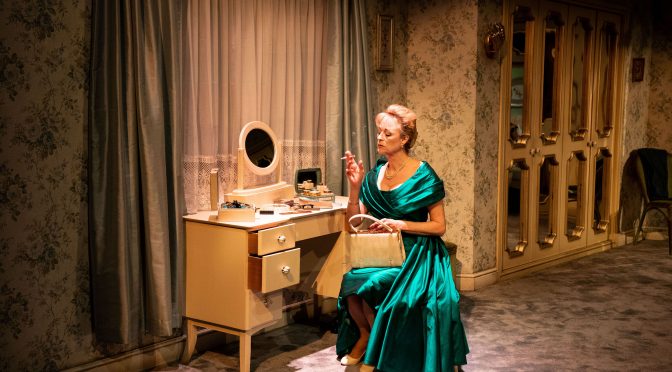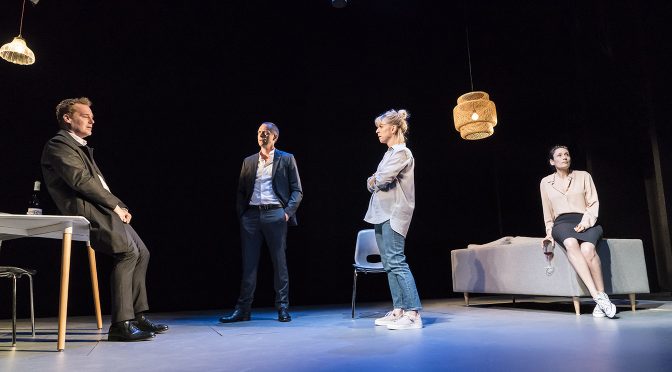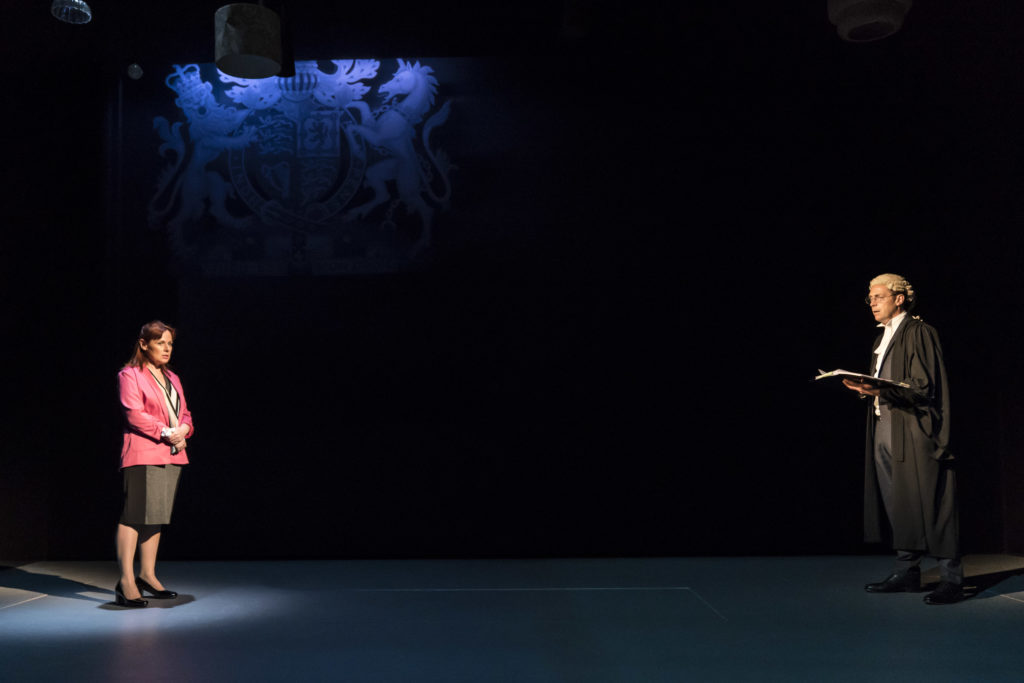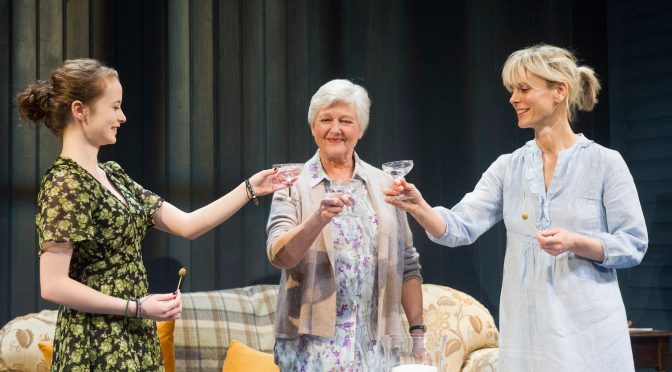As part of the “Hampstead Originals” season, celebrating significant pieces that started off at the venue, this new production reminds us why Shelagh Stephenson’s 1996 play is popular. A satisfying comedy drama and a gift to performers, The Memory of Water has plenty to please.
Within the scenario of three sisters together before their mother’s funeral, Stephenson injects a surprising amount of comedy with a superb ear for dialogue and strong characters. Take your pick from doctor Mary, health food entrepreneur Teresa or the troubled, younger, Catherine. Each has an appeal. And there are three top notch performances to enjoy – from Laura Rogers, Lucy Black and Carolina Main – each a careful detailed study.
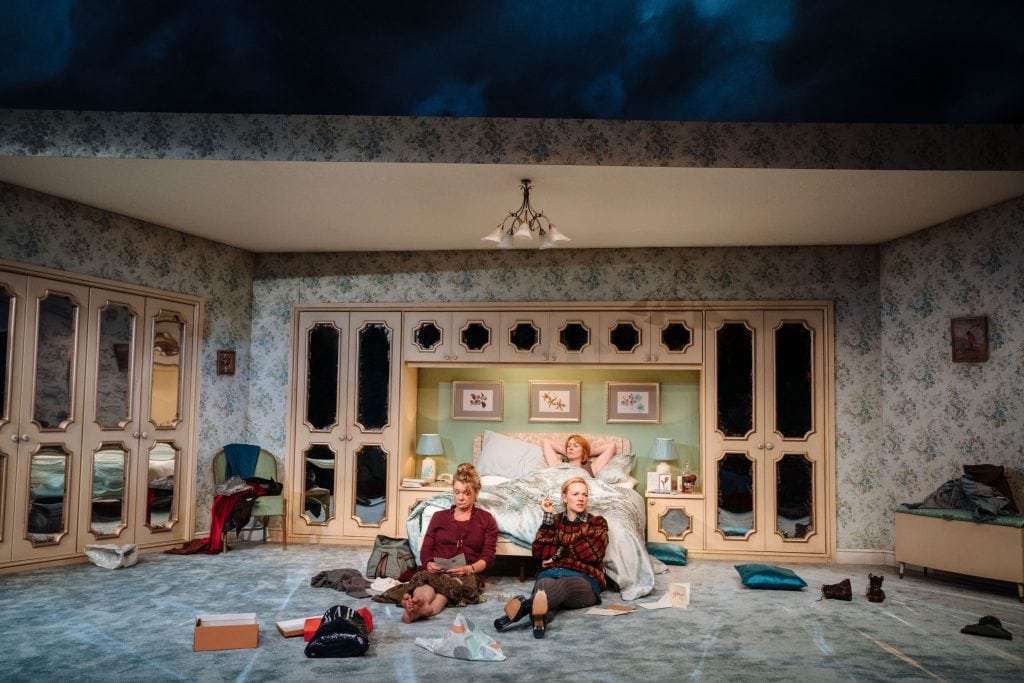
There are good jokes, inappropriate reactions and a down to earth humour that is great fun. Stephenson examines sibling relations with confidence and risqué insight. Meanwhile the theme of memory proves stimulating (if not particularly subtle when it comes to Mary’s research into amnesia) as the sisters’ recollections of their past, and their mother, diverge.
After the interval, The Memory of Water gets bolder and darker. Painful truths and shocking secrets are revealed. The grief within the play becomes multi-layered. And we start to take Catherine’s health problems more seriously. Harsh words are spoken and the action is frequently gripping.
It is with quieter moments that director Alice Hamilton’s command of the play is clearest. While the comedy is strong (with Catherine’s tantrums, Teresa’s neurosis and Mary’s deadpan lines) it’s the pacing of more dramatic scenes that really impresses. Ever alert to the space the text needs, and aided by Johanna Town’s lighting design, Hamilton guides the audience magnificently. Given Sam Yates’ success with the venue’s previous show, Hampstead Theatre is clearly a home for directing talent.
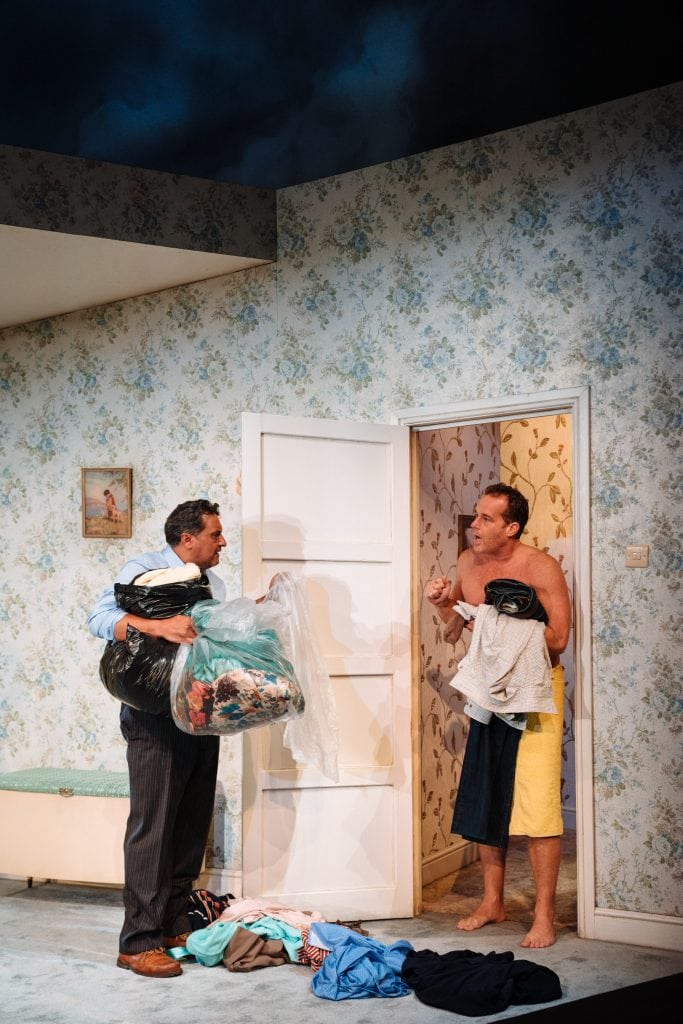
While there’s no doubt that The Memory of Water is a play focused on women, and their relationships with one another, Stephenson deals just as well with the men we meet. Indeed, even the girls’ father, long dead, is a vivid presence. Again, there are great roles for Teresa’s husband and Mary’s married lover that Kulvinder Ghir and Adam James do well with.
A final strength with The Memory of Water comes from the ghostly role of the girls’ mother, Vi. Played by Lizzy McInnerny, with a particularly fine study of her character’s accent, her interactions with Rogers were my favourite scenes. Vi is far more than a foil for her daughter: gifted her own voice, showing us a previous generation, and adding a twist to what we have seen. Vi is funny and hurt while her maternal legacy and suffering from Alzheimer’s takes us to the heart of the play’s theme. Stephenson’s description of the cruel disease, that Vi feels “broken into islands”, is brilliant and moving. As Vi’s influence on her daughters becomes clearer, McInnerny becomes magisterial. Despite Mary’s request, Vi is “never” really going to leave her daughter; like the play, she is a woman to remember.
Until 16 October 2021
Photos by Helen Murray

